What To Give a Dog with Diarrhoea
- Most cases of dog diarrhoea can be effectively treated at home with natural remedies, including fasting, a probiotic paste, and a gradual transition to a bland diet.
- The gut microbiome plays a crucial role in canine digestive health, and supporting beneficial bacteria with natural supplements can resolve many cases of diarrhoea.
- A raw food diet is often the best long-term solution for dogs with recurring digestive issues, as it provides natural enzymes and nutrients that support gut health.
- Natural remedies, such as slippery elm bark, Clinoptilolite zeolite, and bentonite clay, work by soothing the intestinal lining and absorbing toxins, without the side effects associated with pharmaceutical options.
- Continuously monitor for signs of dehydration during diarrhoea episodes, as water loss can become dangerous quickly, especially in small breeds and puppies.
When your dog has diarrhoea, your first instinct might be to rush to the vet. But did you know that most cases can be effectively managed at home with natural remedies? Understanding the underlying causes of your dog's digestive upset is crucial to selecting the most effective natural treatment approach and preventing future episodes.
At JP’s Natural Pet Supplements, we've seen countless cases where simple natural interventions resolve diarrhoea faster than conventional treatments—and without the unwanted side effects. Natural approaches not only address the immediate problem but also help strengthen your dog's digestive system for long-term health.
What Causes Dog Diarrhoea? Signs Your Dog Needs Help
Dog diarrhoea is characterised by loose, watery stools that occur more frequently than usual. It's your dog's body attempting to flush out something that's irritating the digestive tract. While occasional mild diarrhoea might resolve on its own, persistent or severe cases signal that your dog's body needs additional support to restore balance.
Common Symptoms Beyond Loose Stools
Diarrhoea rarely comes alone. Your dog might also show other symptoms that can help you determine the severity of the condition. Look for signs like lethargy, loss of appetite, vomiting, or straining during defecation. You might also notice mucous or blood in the stool, excessive gas, or visible discomfort when your dog's abdomen is touched. The colour of the stool can provide essential clues; yellow or orange may indicate bile issues, while black or tarry stools could suggest bleeding in the upper digestive tract.
Take note of your dog's behaviour before and during the diarrhoea episode. Did they get into the rubbish? Have they been in environments where they could have picked up parasites? Recording these observations will help you identify patterns and triggers for future prevention.
What is the Gut Microbiome?
The gut microbiome is a complex community of billions of microorganisms living in your dog's digestive tract. These include bacteria, fungi, viruses, and other microbes that play crucial roles in digestion, nutrient absorption, and immune function. A healthy microbiome comprises a diverse array of beneficial bacteria that aid in breaking down food, producing essential vitamins, and protecting against harmful pathogens.
Beneficial gut bacteria

When this delicate ecosystem becomes unbalanced—a condition known as dysbiosis—digestive issues like diarrhoea often follow. Poor diet, stress, antibiotics, and environmental toxins can disrupt the balance. Supporting and restoring your dog's gut microbiome is often the most effective way to naturally resolve chronic diarrhoea.
Recent research has revealed that up to 80% of a dog's immune system resides in the gut, making microbiome health even more critical for overall well-being. This explains why digestive issues often coincide with other health problems, such as skin conditions, allergies, and even behavioural changes.
Duration: Acute vs. Chronic Diarrhoea
Acute diarrhoea comes on suddenly and typically resolves within 2-3 days. It's often triggered by dietary indiscretion—such as your dog getting into the trash or being fed new foods too quickly. Most acute cases respond well to simple home care and a probiotic paste.
Chronic diarrhoea, lasting two weeks or longer, indicates a more persistent issue that requires a comprehensive approach. It may signal food sensitivities, parasitic infections, inflammatory bowel disease, or other chronic conditions. While natural treatments can be effective for chronic cases, they typically need to be part of a broader healing protocol.
Understanding whether your dog's diarrhoea is acute or chronic will guide your treatment approach. Acute cases may require only short-term interventions, while chronic issues necessitate your Veterinarian's Attention to the root causes and long-term digestive support.
7 Main Causes of Dog Diarrhoea
Identifying the underlying cause of your dog's diarrhoea is essential for effective treatment. While there are numerous potential triggers, most cases fall into these seven main categories. Each cause requires a slightly different approach, although many natural remedies offer benefits across multiple conditions.
1. Dietary Indiscretion and Food Sensitivity: Why a Raw Food Diet is the Best for Dogs
The most common cause of diarrhoea in dogs is simply eating something they shouldn't—whether it's rubbish, spoiled food, or a new food introduced too quickly. Dogs are natural scavengers, and their curiosity often leads them to ingest things that upset their digestive system. Food sensitivities and allergies are also increasingly common, with many commercial dog foods containing ingredients that can trigger inflammatory responses in the gut.
A raw food diet closely mimics what dogs would eat in nature and often resolves chronic digestive issues that persist with processed foods. Raw diets provide natural enzymes that aid digestion, appropriate fibre levels, and nutrients in their most bioavailable forms. The absence of artificial additives, fillers, and excessive carbohydrates makes raw food inherently more digestible for most dogs.

When transitioning to raw feeding, many dog owners report that chronic diarrhoea resolves completely. The natural balance of proteins, fats, and bone content in raw diets helps form firm, healthy stools. Even dogs with long-standing "sensitive stomachs" often thrive once switched to species-appropriate raw nutrition.
2. An Unbalanced Gut Microbiome
Dysbiosis—an imbalance in the gut microbiome—is both a cause and effect of diarrhoea. When beneficial bacteria are depleted and harmful bacteria proliferate, the digestive tract cannot function properly. Antibiotics, stress, poor diet, or exposure to environmental toxins can trigger this imbalance. Restoring microbiome balance through probiotics, prebiotics, and dietary adjustments is often the most effective approach for long-term resolution of recurring diarrhoea.
3. Bacterial and Viral Infections
Pathogenic bacteria, such as Salmonella, E. coli, and Clostridium, can cause severe diarrhoea in dogs. Viral infections such as parvovirus, coronavirus, and distemper also commonly manifest with digestive symptoms. These serious infections require veterinary intervention.
4. Intestinal Parasites
Parasites like Giardia, coccidia, roundworms, and hookworms commonly cause diarrhoea in dogs. These unwelcome guests irritate the intestinal lining and steal nutrients, resulting in loose stools, weight loss, and a decreased appetite. While conventional vets typically prescribe chemical dewormers, many parasitic infections can be effectively addressed with natural antiparasitic herbs like black walnut, wormwood, and Oregon grape root.
Diatomaceous earth, when used properly, can also help eliminate many intestinal parasites mechanically rather than chemically. Regular testing and a proactive approach to parasite prevention using natural methods can keep these troublemakers at bay without resorting to harsh chemicals that may further disrupt gut health.
5. Stress and Anxiety
The gut-brain connection is as real in dogs as it is in humans. Stressful situations, such as boarding, moving, or changes in routine, can trigger diarrhoea in sensitive dogs. This "stress colitis" occurs because anxiety activates the fight-or-flight response, redirecting blood flow away from the digestive system and altering gut motility. Addressing the underlying anxiety through behaviour modification, environmental enrichment, and natural calming supplements like L-theanine or valerian can help resolve stress-induced digestive upsets.
Some dogs benefit from adaptogenic herbs, such as ashwagandha or holy basil, which help the body adapt to stress more effectively. Creating predictable routines and safe spaces for anxious dogs can significantly reduce the frequency of stress-related diarrhoea episodes.
6. Medication Side Effects
Many medications, especially antibiotics, commonly cause diarrhoea as a side effect. Antibiotics don't discriminate between beneficial and harmful bacteria, wiping out much of your dog's protective gut flora and creating an environment where opportunistic pathogens can thrive. NSAID pain relievers, steroids, and some heartworm preventatives can also irritate the digestive tract and lead to loose stools.
If your dog must take medications that disturb digestive health, concurrent use of probiotics and gut-healing supplements can help minimise the impact. Always separate the administration of probiotics from antibiotics by at least two hours to ensure maximum effectiveness. JP’s Doggie Fibre can also help soothe intestinal inflammation caused by necessary medications.
7. Underlying Health Conditions
Chronic or recurrent diarrhoea sometimes signals more serious health issues like inflammatory bowel disease, exocrine pancreatic insufficiency, liver disease, or even certain cancers. These conditions require a comprehensive veterinary diagnostic workup and targeted treatment plans. However, even with these more complex causes, natural supportive therapies can play a vital role in managing symptoms and improving quality of life.
Anti-inflammatory herbs, digestive enzymes, and carefully selected nutritional supplements can complement conventional treatments for these conditions. The key is working with a holistic or integrative veterinarian who understands how to combine the best of natural and traditional approaches for optimal results.
Effective Natural Remedies for Dog Diarrhoea
Now that we understand the common causes, let's explore proven natural remedies to resolve diarrhoea and restore digestive health. These approaches work with your dog's body, rather than suppressing symptoms, to promote true healing and prevent recurrence.
Fasting: When and How to Safely Skip Meals
Giving your dog's digestive system a brief rest is often the first and most effective step in resolving acute diarrhoea. A 12-24 hour fast allows the intestinal tract to calm inflammation and clear irritants. During this time, ensure your dog has access to plenty of clean, fresh water to prevent dehydration, or, preferably, a canine oral rehydration solution. This approach mimics what would happen naturally in the wild—sick animals instinctively stop eating to allow their bodies to heal.
Fasting is generally safe for healthy adult dogs, but use caution with puppies, seniors, or dogs with conditions like diabetes that require regular meals. For these dogs, consider smaller, more frequent meals of easily digestible foods rather than complete fasting. Constantly monitor your dog closely during a fast, and if they seem weak or lethargic, end the fast and consult your Vet.
The Bland Diet and Raw Food Diet Approach
After fasting, reintroducing food slowly with a bland diet gives the digestive tract time to recover. Traditional bland diets typically consist of boiled white meat chicken (without skin or bones). This provides easily digestible nutrition without irritating the gut. Start with small portions every few hours, gradually increasing the amount and decreasing the frequency as stools improve.
For raw feeders, a simplified raw diet of a single novel protein source often works best. Raw meat provides natural enzymes that aid digestion and contains no artificial ingredients that might prolong digestive upset. Adding bone broth to either cooked or raw transition diets provides healing nutrients and improves palatability.
As your dog improves, gradually transition back to their regular diet over 3-5 days by mixing increasing amounts of regular food with the bland diet. This slow transition prevents the diarrhoea from returning due to sudden dietary changes. Many pet owners find that a permanent switch to a species-appropriate raw diet after a bout of diarrhoea prevents future episodes.
Pumpkin Power: Nature's Digestive Regulator
Plain canned pumpkin (not pie filling) is a remarkably effective remedy for both diarrhoea and constipation, thanks to its unique fibre composition. For diarrhoea, pumpkin absorbs excess water in the digestive tract, helping to firm up loose stools. The soluble fibre also feeds beneficial gut bacteria, supporting microbiome health. Start with 1-2 teaspoons for small dogs or 1-2 tablespoons for larger breeds, mixed into food once or twice daily, adjusting the amount based on your dog's response. Fo
Probiotics and Prebiotics for Gut Health
Probiotics introduce beneficial bacteria to recolonise the gut, while prebiotics provide the specific fibres these beneficial bacteria need to thrive. Together, they help restore microbial balance and strengthen the intestinal barrier. Look for canine-specific probiotic formulations containing multiple strains of beneficial bacteria, particularly Lactobacillus, Bifidobacterium, and Saccharomyces bouvardia—a probiotic yeast especially effective for diarrhoea.
For acute diarrhoea, higher doses of probiotics may be needed initially. Many holistic Veterinarians recommend doubling the maintenance dose during active digestive upset, then gradually reducing it to a regular preventive dose as symptoms improve. Consistency is key—even after symptoms resolve, continuing probiotics for at least two weeks helps ensure the new bacterial colonies become firmly established.

Probiotic Strains Most Effective for Canine Diarrhoea
- Saccharomyces bouvardia - A beneficial yeast that fights pathogenic bacteria and supports immune function
- Lactobacillus acidophilus - Helps maintain the intestinal barrier and produces natural antibiotics
- Bifidobacterium animalis - Improves stool consistency and reduces inflammation
- Enterococcus faecium - Helps restore normal gut flora after antibiotic treatment
- Bacillus coagulans - Highly stable spore-forming bacteria that survive stomach acid
Prebiotics like inulin, FOS (fructo-oligosaccharides), and slippery elm not only feed beneficial bacteria but also help soothe the intestinal lining and reduce inflammation. This combination approach addresses both the symptoms and underlying causes of digestive disturbance. For dogs with sensitive systems, introduce prebiotics gradually to avoid gas or bloating.
Bone Broth for Hydration and Healing
Homemade bone broth is one of the most nourishing and healing substances for a dog with diarrhoea. The long, slow cooking process extracts gelatin, collagen, glycine, and minerals that soothe and repair the gut lining. The broth's appealing flavour encourages dogs to drink, helping maintain hydration when water consumption might be reduced. Serve bone broth lukewarm in small quantities throughout the day, either alone during fasting or added to bland food during the reintroduction phase. For maximum healing benefits, make broth from grass-fed animal bones and joints, simmering for 24-48 hours with a splash of apple cider vinegar to help extract minerals.
Hydration Strategies During Digestive Upset
Dehydration is the most immediate danger of diarrhoea, especially for small dogs and puppies who have limited fluid reserves. Replacing lost fluids and electrolytes by using a canine oral rehydration solution is critical, even more important than addressing the diarrhoea itself in the early stages. Beyond plain water, which some dogs may refuse when feeling unwell, there are several effective ways to maintain hydration during digestive upsets that can prevent a minor issue from becoming an emergency.
Signs of Dehydration in Dogs
Monitoring for dehydration is essential when your dog has diarrhoea. Check for skin elasticity by gently pinching the skin at the scruff of the neck—if it doesn't immediately return to its normal position, your dog is likely dehydrated. Other warning signs include dry, tacky gums, sunken eyes, lethargy, and decreased urination. In severe cases, the dog may have a weak pulse and cold extremities. Dehydration can progress rapidly, especially in toy breeds, puppies, and seniors, so don't wait for advanced symptoms to take action. If you suspect significant dehydration, particularly if your dog refuses to drink or continues to lose fluids through persistent diarrhoea, seek veterinary care promptly, as subcutaneous or intravenous fluids may be necessary.
Creative Ways to Increase Water Intake and Rehydration Solutions
Homemade Electrolyte Solution for Dogs
Mix the following ingredients in 1 quart of water:
- 1 tablespoon raw honey or maple syrup
- 1 teaspoon sea salt or pink Himalayan salt
- ½ teaspoon baking soda (sodium bicarbonate)
Offer small amounts frequently throughout the day. For very small dogs, reduce the concentration by using half the ingredients in the same amount of water.
When dogs are reluctant to drink plain water, ice cubes made from bone broth, goat's milk, or diluted meat baby food can encourage fluid intake. These flavour-enhanced ice cubes are particularly effective in hot weather, providing both hydration and small amounts of easily digestible nutrition. Some dogs will readily lick ice cubes when they refuse to drink from water bowls.
Freezing bone broth or goat's milk in silicone moulds or ice cube trays creates a hydrating treat that most dogs eagerly accept. The cold temperature can also be soothing to an inflamed digestive tract. For dogs who enjoy chewing, larger frozen blocks made in small containers can provide longer-lasting hydration opportunities.
A turkey baster or large syringe (without a needle) can be used to gently administer small amounts of water, bone broth, or electrolyte solution directly into the side of your dog's mouth if they refuse to drink voluntarily. Be cautious not to force too much at once, as this could cause choking or aspiration. Aim for frequent administration of small amounts—just a few millilitres for toy breeds, up to 15-20ml for larger dogs—rather than trying to provide large volumes all at once.
Natural Anti-Diarrhoeal Herbs and Supplements
Beyond the basic remedies, several powerful herbs and natural compounds can significantly speed recovery from diarrhoea. These natural options often work more gently than pharmaceutical alternatives, addressing the underlying imbalances rather than just suppressing symptoms. When used correctly, these remedies can resolve even stubborn cases of diarrhoea while supporting your dog's overall digestive health.
1. Slippery Elm Bark
Slippery elm is a remarkable herb that creates a soothing, gel-like substance when mixed with water. This mucilage coats the entire digestive tract, calming inflammation and protecting from irritants. It also contains nutrients that nourish the gut lining, supporting healing from the inside out. For acute diarrhoea, administer slippery elm on an empty stomach approximately 30 minutes before meals, using about 1/4 teaspoon of powder per 10 pounds of body weight, mixed with enough water to create a syrup-like consistency.
The demulcent properties of slippery elm make it especially valuable for cases where there's visible mucous in the stool, indicating intestinal irritation. Many holistic Vets recommend combining slippery elm with marshmallow root for enhanced soothing effects, particularly in cases of inflammatory bowel conditions or after a bout with parasites that have damaged the intestinal lining.
2. Fibre and Prebiotics
Specific types of fibre can help normalise bowel function during digestive upset. Psyllium husk provides gentle bulk-forming properties that firm up loose stools without causing constipation. Ground flaxseeds offer both soluble and insoluble fibre, plus omega-3 fatty acids that help reduce inflammation in the digestive tract. These natural fibres also function as prebiotics, nourishing beneficial bacteria that help restore gut balance.

For dogs with chronic or recurring diarrhoea, carefully selected fibre sources can make a tremendous difference in day-to-day comfort and stool quality. Start with tiny amounts—about 1/4 teaspoon per 10 pounds of body weight—and gradually increase as tolerated. Consuming too much fibre too quickly can worsen gas and digestive discomfort, so a cautious approach is best, especially for dogs with sensitive digestive systems.
3. Probiotic Paste
High-potency probiotic pastes, specifically designed for acute digestive upset, deliver concentrated beneficial bacteria directly to the digestive tract. These products typically contain multiple strains of live bacteria at much higher colony-forming unit (CFU) counts than standard supplements. Many also include prebiotics, digestive enzymes, and soothing ingredients like kaolin clay. The paste format allows for easy administration even when a dog is refusing food, and the concentrated delivery system helps beneficial bacteria quickly establish colonies throughout the intestinal tract.
Dog probiotic pastes are particularly valuable during the early stages of diarrhoea or when transitioning from a fast back to regular feeding. For maximum effectiveness, administer the paste at least two hours away from any medications, especially antibiotics. Continue using the paste for several days after symptoms resolve to ensure the beneficial bacteria become firmly established.
4. Bentonite Clay and Clinoptilolite Zeolite
These natural mineral compounds have remarkable toxin-binding properties that can quickly resolve many cases of diarrhoea. Bentonite clay works by adsorbing (binding to its surface) toxins, bacteria, and even certain viruses in the digestive tract. Zeolite, with its honeycomb-like molecular structure, traps toxins and heavy metals within its framework. Both substances pass through the digestive system without being absorbed, carrying the bound toxins safely out of the body.
For acute diarrhoea, especially cases suspected to be caused by toxins or bacterial overgrowth, administer 1/4 to 1/2 teaspoon of bentonite clay or zeolite powder per 10 pounds of body weight, mixed with water to form a slurry. Because these substances can bind to medications and nutrients, give them at least two hours away from any drugs or supplements.
Preventing Future Bouts of Diarrhoea
While knowing how to treat diarrhoea naturally is important, prevention is always preferable. An initiative-taking approach to digestive health can significantly reduce the frequency and severity of digestive upsets. By addressing diet, environmental factors, and overall wellness, you can help your dog maintain robust digestive function even when faced with occasional challenges.
Feed a Protein Source That Your Dog Has Not eaten before, But It Must Be of a Raw Food Diet
For dogs with recurring digestive issues, a novel protein approach can be transformative. Common proteins like chicken, beef, and turkey are frequent allergens for many dogs due to overexposure through commercial pet foods. Switching to less common proteins such as rabbit, venison, duck, or even kangaroo can give the immune system a fresh start. The key is selecting a protein your dog has truly never consumed before, as even small previous exposures can trigger reactions in sensitive individuals.
When introducing these novel proteins, do so in their raw, unprocessed form. Raw meat contains natural enzymes that aid digestion and is free from the processing additives that can trigger inflammatory responses. Start with small amounts and gradually increase over 7-10 days, monitoring stool quality. Many dogs who struggle with commercial foods of any type thrive on this simplified, biologically appropriate approach.
Regular Natural Parasite Prevention
Many cases of chronic or recurring diarrhoea stem from low-grade parasitic infections that conventional testing might miss. An initiative-taking, natural parasite prevention program can break this cycle without resorting to harsh chemicals. Rotating herbal antiparasitics, such as black walnut hull, wormwood, clove, and Oregon grape root, provides broad-spectrum protection against various intestinal parasites while being gentle on your dog's system when used appropriately.
Food-based parasite deterrents can also be incorporated into your dog's regular diet. Fresh, organic pumpkin seeds contain cucurbitacin, a compound that paralyses worms and helps eliminate them from the digestive tract. Coconut oil contains medium-chain triglycerides with antimicrobial and antiparasitic properties. Garlic, when used in appropriate amounts for dogs (about 1/4 clove per 10 pounds of body weight), offers natural protection against many common parasites.
|
Natural Parasite Prevention Ingredient |
Properties |
Recommended Usage |
|
Black Walnut Hull |
Broad-spectrum antiparasitic, especially effective against worms |
Use for 10 days, then rest 20 days before repeating |
|
Diatomaceous Earth (Food Grade) |
Mechanical action dehydrates parasites |
1 tsp per 25 lbs body weight daily for 30 days |
|
Pumpkin Seeds |
Contains cucurbitacin, which paralyses worms |
1 tsp ground seeds per 10 lbs body weight daily |
|
Grapefruit Seed Extract |
Antimicrobial effective against Giardia and other parasites |
3-5 drops per 10 lbs body weight twice daily |
Regular faecal testing through an integrative Vet can help monitor parasite levels and adjust your natural prevention protocol as needed. Many holistic practitioners recommend quarterly parasite cleanses for dogs with histories of digestive issues, changing the specific herbs based on your dog's individual needs and any regional parasite concerns.
Stress Management Techniques
For dogs prone to stress-induced diarrhoea, implementing calming strategies can prevent digestive upsets before they begin. Regular exercise, predictable routines, and safe spaces where your dog can retreat when feeling overwhelmed all contribute to emotional stability. Natural calming aids like L-theanine, valerian, chamomile, and CBD oil (only a Vet can prescribe CBD oil to animals in the UK) can help sensitive dogs cope with unavoidable stressors like thunderstorms, travel, or houseguests without their digestive systems bearing the brunt of their anxiety.
When to Skip Home Remedies and Call the Vet
While natural approaches are practical for most routine cases of diarrhoea, certain situations require professional veterinary care. Recognising the difference between self-limiting digestive upset and potentially serious conditions is crucial for your dog's well-being. When in doubt, especially with very young, very old, or compromised dogs, consult with your Vet.
Even when seeking veterinary care, you can still advocate for an integrative approach that incorporates natural supportive therapies alongside any necessary conventional treatments. Many enlightened Vets now recognise the value of combining approaches for optimal outcomes, especially in complex cases.
Red Flag Symptoms Requiring Immediate Care
Seek immediate veterinary attention if your dog's diarrhoea is accompanied by profuse, bloody discharge; severe lethargy or collapse; persistent vomiting; signs of abdominal pain such as a hunched posture or crying when touched; fever above 103°F; or if you suspect ingestion of toxins or foreign objects. These symptoms can indicate severe conditions such as haemorrhagic gastroenteritis, parvovirus, obstruction, or poisoning that require professional intervention. Additionally, if diarrhoea persists for more than 48 hours despite home care, or if your dog shows signs of significant dehydration like tacky gums and sunken eyes, don't delay in seeking veterinary evaluation.
Special Considerations for Puppies and Senior Dogs
Puppies and senior dogs have less physiological reserve to cope with the fluid losses associated with diarrhoea. For puppies under six months, even mild diarrhoea should be monitored very closely, and persistent cases warrant a veterinary visit within 24 hours rather than the 48-hour guideline for healthy adults. The same accelerated timeline applies to seniors over about 10 years of age (varying by breed) and any dog with pre-existing conditions like kidney disease, heart issues, or diabetes.
When using natural remedies for these vulnerable groups, start with more conservative dosing—typically about half the standard adult dose for puppies and fragile seniors—and monitor response carefully. Fasting should be approached with extra caution in these groups; for puppies, limit fasting to 6-12 hours maximum, and for seniors with underlying conditions, consult your Vet before withholding food.
Your Action Plan for Dog Digestive Health
Having a clear action plan before digestive issues arise can save precious time and reduce stress when your dog develops diarrhoea. Prepare a "digestive first aid kit" containing slippery elm, probiotics, electrolyte solutions, and other key remedies discussed in this article. Familiarise yourself with the proper dosing for your dog's weight and keep the supplies in an easily accessible location.
Start with the most conservative approach appropriate for your dog's specific situation. For a healthy adult dog with mild, acute diarrhoea and no other concerning symptoms, begin with a 12-24 hour fast while providing ample fresh water. Introduce slippery elm bark to soothe the digestive tract, followed by probiotics to restore gut flora. Transition slowly back to regular feeding through a bland diet as an intermediate step.
Monitor and document your dog's response to treatment, including stool consistency, frequency, appetite, energy levels, and any other relevant symptoms. This documentation helps identify patterns over time and provides valuable information should you need to consult your veterinarian. If symptoms worsen or fail to improve within 24-48 hours, or if red flag symptoms develop at any point, don't hesitate to seek professional care.
Dog Diarrhoea Action Protocol
- Assess Severity: Note frequency, consistency, colour, and presence of blood or mucous
- Initial Response: For healthy adults, fast for 12-24 hours with access to water, preferably a canine oral rehydration solution.
- Soothing Support: Administer slippery elm 30 minutes before reintroducing food
- Reintroduce Food: Start with small portions of a bland diet or simplified raw
- Restore Gut Flora: Begin probiotics and continue for at least 2 weeks
- Gradual Transition: Slowly return to regular diet over 3-5 days
- Preventative Measures: Implement dietary adjustments and supplements as needed
Frequently Asked Questions
Navigating dog diarrhoea can raise many questions, especially when you're committed to natural approaches. Here are answers to the most common questions dog owners ask about managing digestive upsets holistically.
Should I use probiotic paste when my dog first gets diarrhoea?
Yes, administering a high-quality probiotic paste at the first sign of loose stools can help resolve many cases of diarrhoea before they become severe. The concentrated beneficial bacteria in these products help quickly restore gut flora balance, crowd out pathogens, and support the immune system. For maximum effectiveness, give the paste on an empty stomach, at least two hours away from any medications, especially antibiotics. Continue using the probiotic paste for at least 5-7 days after symptoms resolve to ensure the beneficial bacteria become firmly established in the digestive tract.
Can I give my dog human anti-diarrhoeal medications?
No, human anti-diarrheal medications like Imodium (loperamide) should only be given under veterinary supervision, if at all. These medications work by slowing intestinal motility, which can be dangerous if your dog's diarrhoea is caused by bacteria, parasites, or toxins that need to be expelled from the body. Additionally, certain breeds with the MDR1 gene mutation (including many herding breeds) can have severe adverse reactions to these medications. Natural approaches that soothe the digestive tract while allowing the body to eliminate problematic substances are generally safer and address the underlying causes rather than just suppressing symptoms.
Is a raw food diet best for dogs with diarrhoea?
A properly balanced raw diet is often the ideal long-term solution for dogs with chronic or recurring digestive issues. The natural enzymes, appropriate moisture content, and absence of artificial additives make raw food inherently more digestible for most dogs. Studies have shown that raw-fed dogs typically have firmer stools, better nutrient absorption, and more diverse gut microbiomes compared to kibble-fed dogs.
However, during an active bout of diarrhoea, a simplified, bland diet may be more appropriate until the acute symptoms resolve. Once stability returns, a gradual transition to raw feeding often helps prevent future episodes. When making this transition, start with simple recipes featuring a single protein source and minimal ingredients, adding variety only after your dog demonstrates consistent digestive wellness.
Can stress alone cause severe diarrhoea in dogs?
Yes, stress and anxiety can trigger severe diarrhoea in susceptible dogs. The condition known as stress colitis occurs because the gut and brain are intimately connected through the enteric nervous system. When a dog experiences anxiety, stress hormones like cortisol flood the system, altering gut motility, permeability, and microbial balance. Some particularly sensitive dogs develop profuse, sometimes bloody diarrhoea in response to relatively minor stressors like car rides, thunderstorms, or boarding. While stress-induced diarrhoea can be alarming, it typically resolves quickly once the stressor is removed and appropriate support is provided.
For dogs with a history of stress-related digestive issues, pre-emptive strategies can help prevent episodes. Adaptogenic herbs like ashwagandha, calming supplements containing L-theanine or magnolia bark, and behaviour modification techniques can all help reduce the digestive impact of unavoidable stressful situations. Some dogs also benefit from probiotics containing specific strains like Lactobacillus rhamnosus that have been shown to influence the gut-brain axis positively.
With consistent attention to diet, gut health, stress management, and natural preventative measures, most dogs can maintain excellent digestive health throughout their lives. Even those with chronic conditions can experience significant improvements through holistic approaches that address root causes rather than just managing symptoms.
- Always transition to new foods gradually, mixing increasing amounts of new food with decreasing amounts of old food over 7-10 days
- Keep a "digestive journal" tracking your dog's diet, supplements, and stool quality to identify patterns and triggers
- Consider seasonal parasite cleanses using rotating natural antiparasitics to prevent recurring infections
- Test for food sensitivities through elimination diets rather than relying solely on blood tests, which can produce false positives
- Work with a holistic or integrative Vet who respects your preference for natural approaches while providing conventional care when truly needed
Remember that each dog is an individual with unique digestive needs and sensitivities. What works perfectly for one dog may not be ideal for another. Pay close attention to your dog's responses to different foods and supplements and be willing to adjust your approach based on their specific needs. With patience and careful observation, you'll discover the optimal natural digestive support protocol for your canine companion.





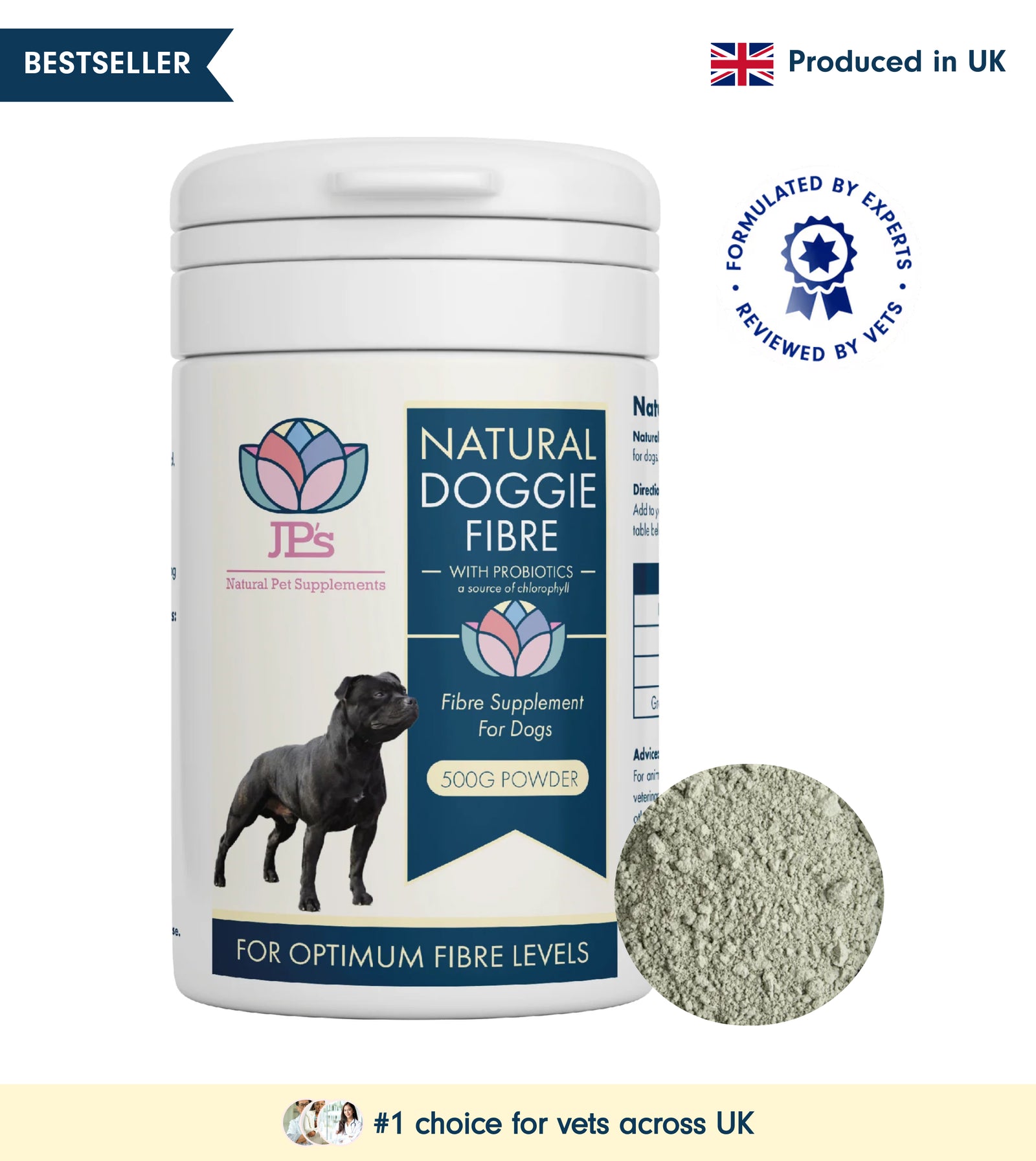
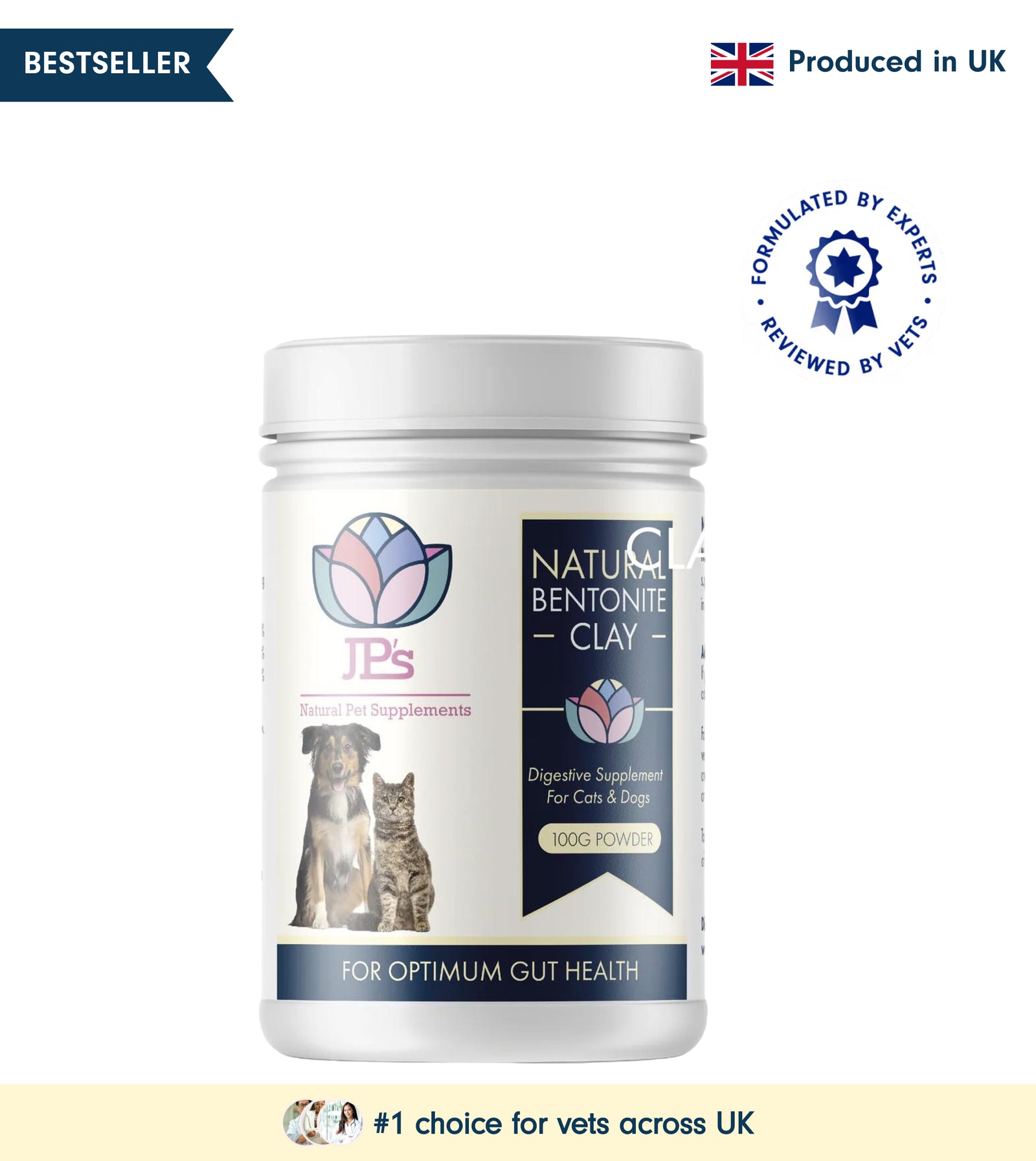
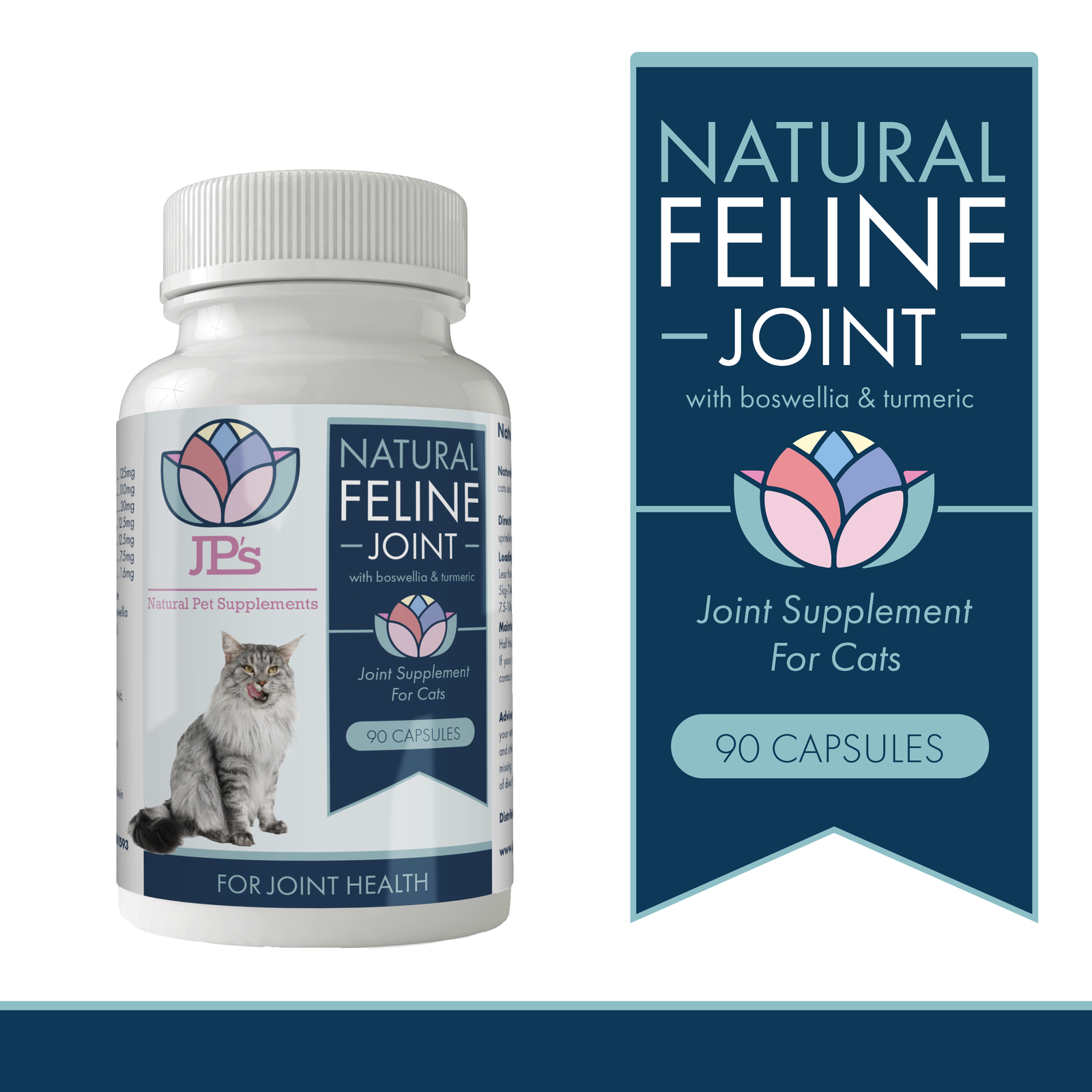
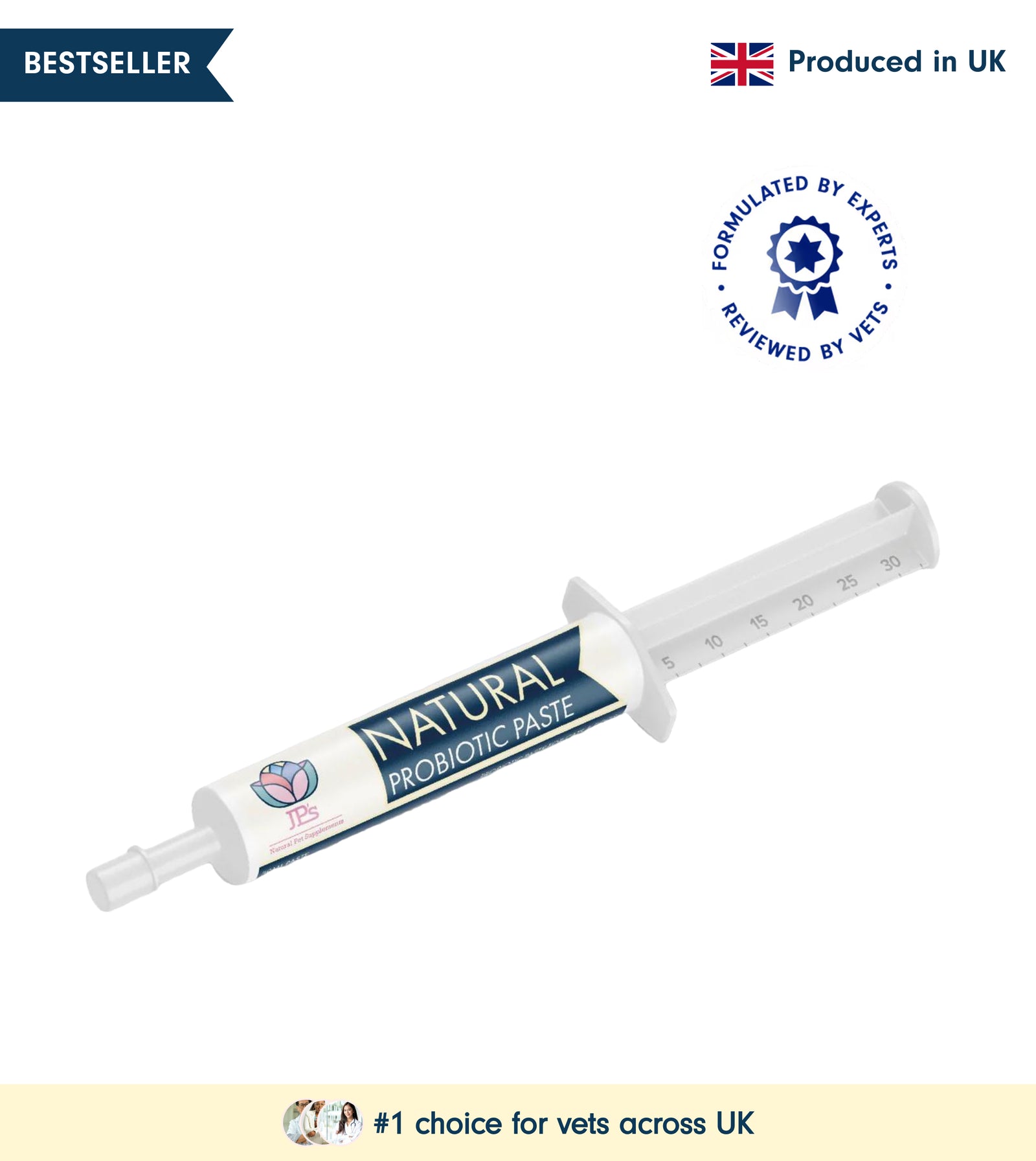
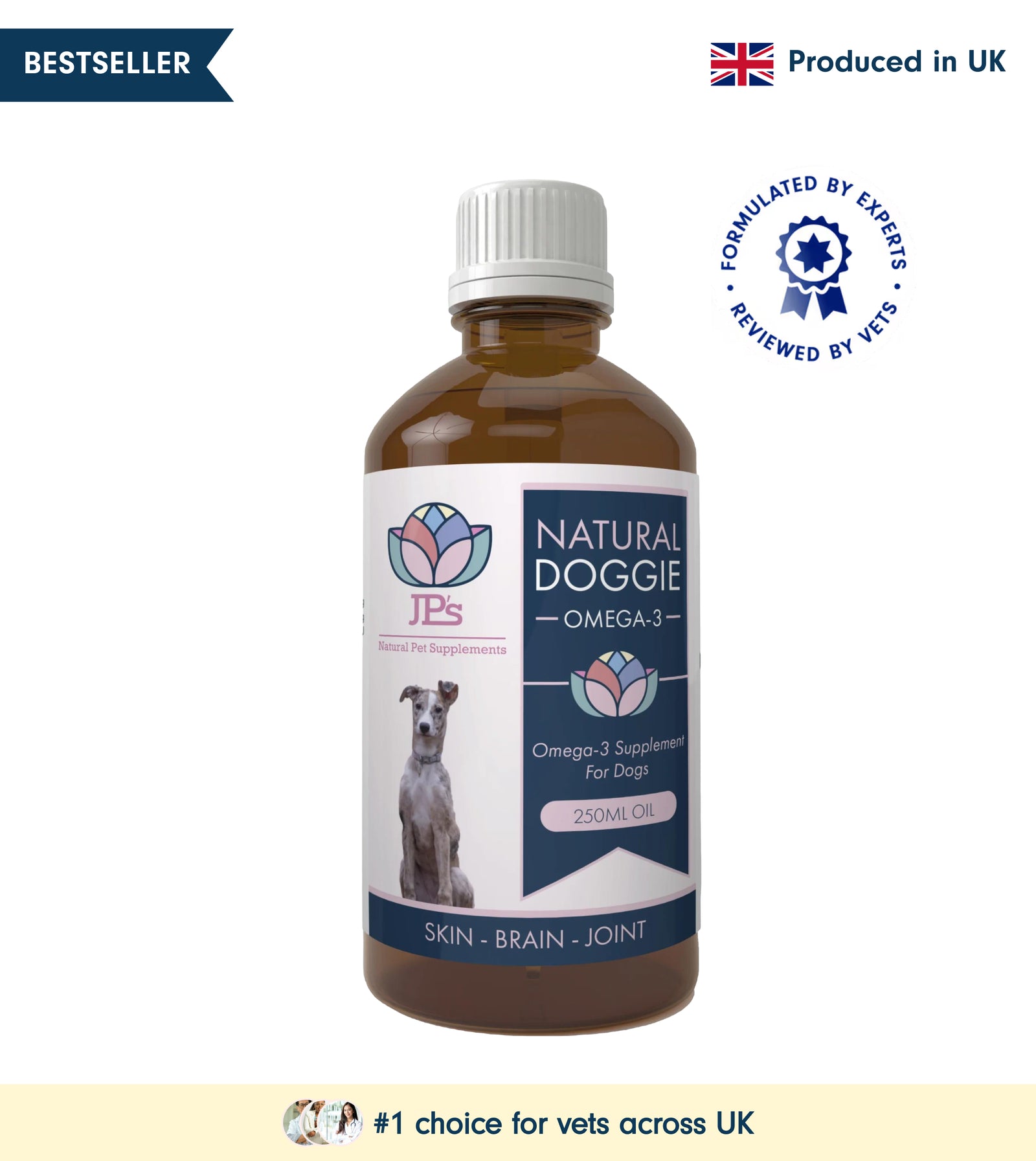
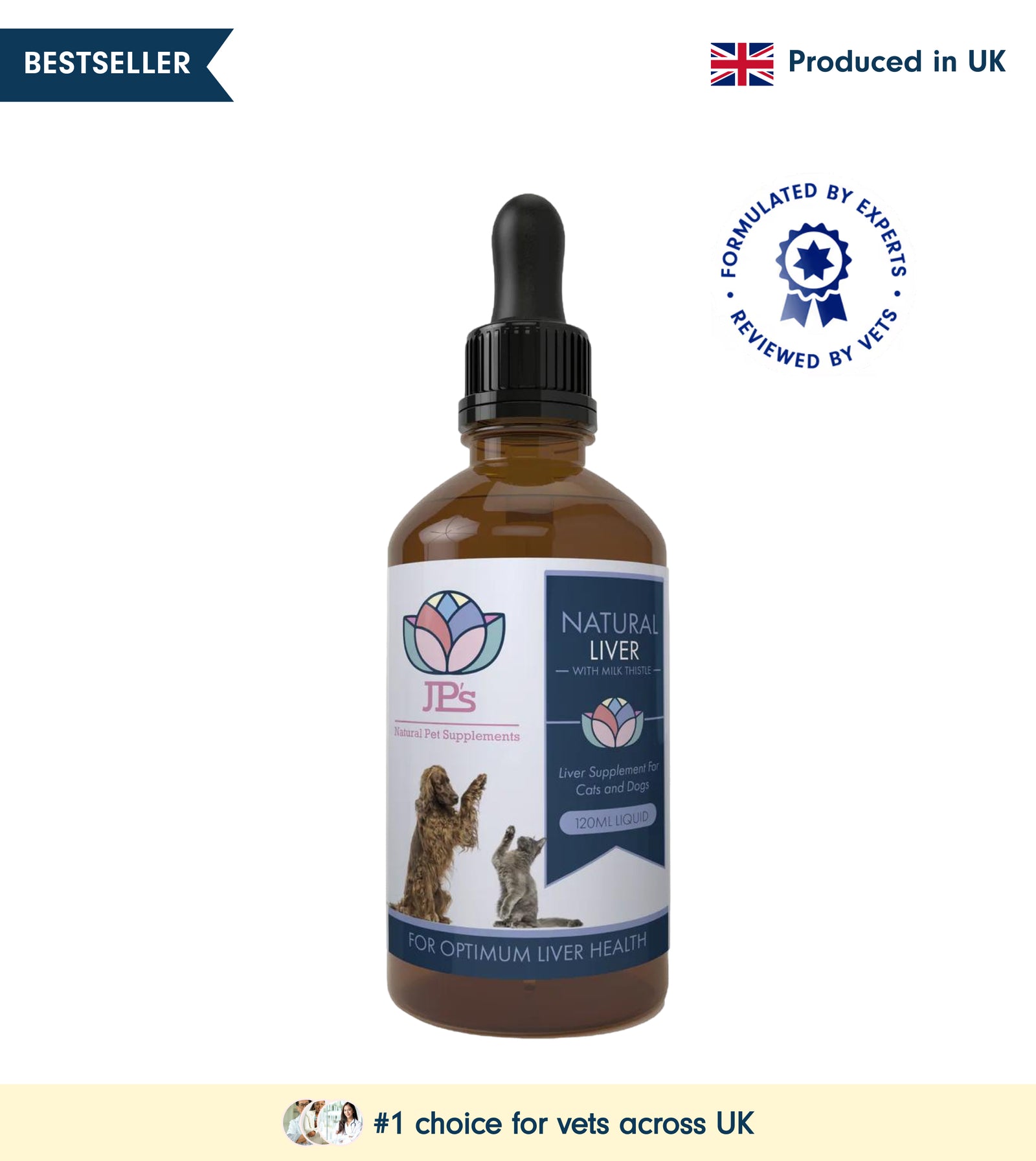
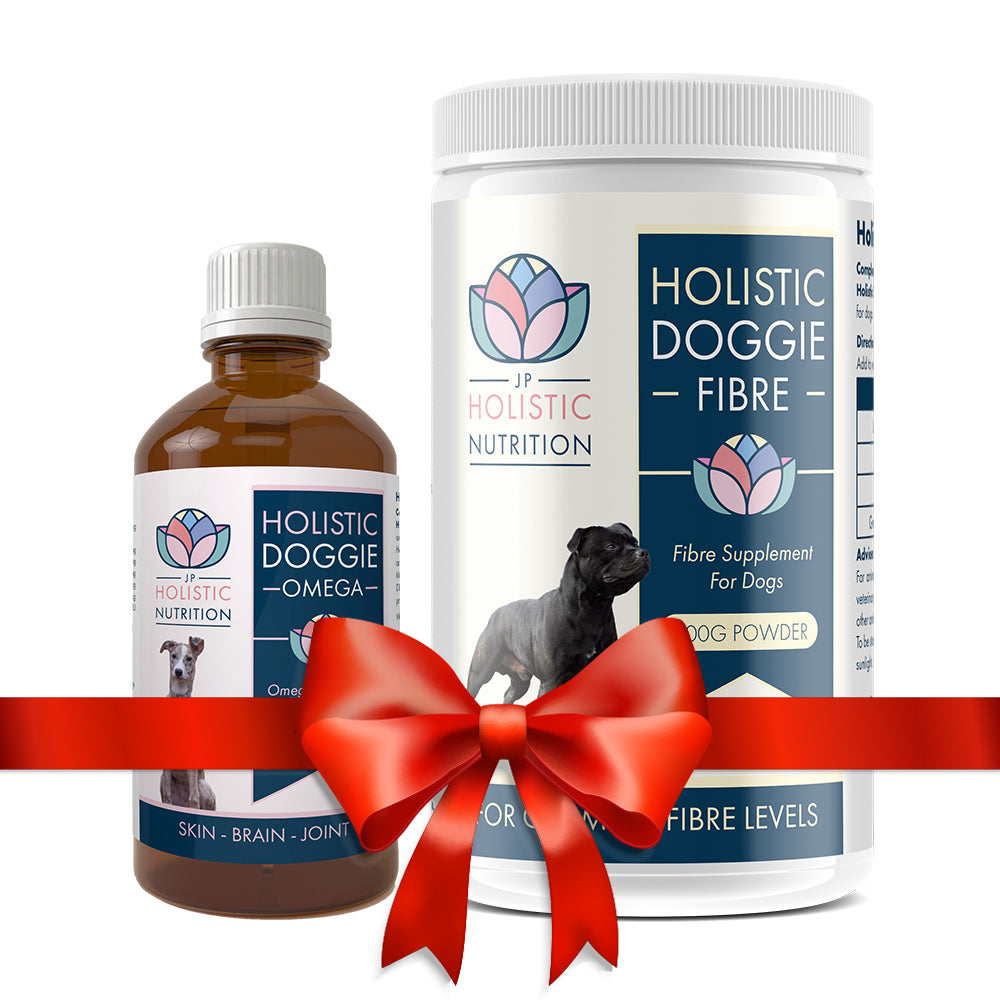
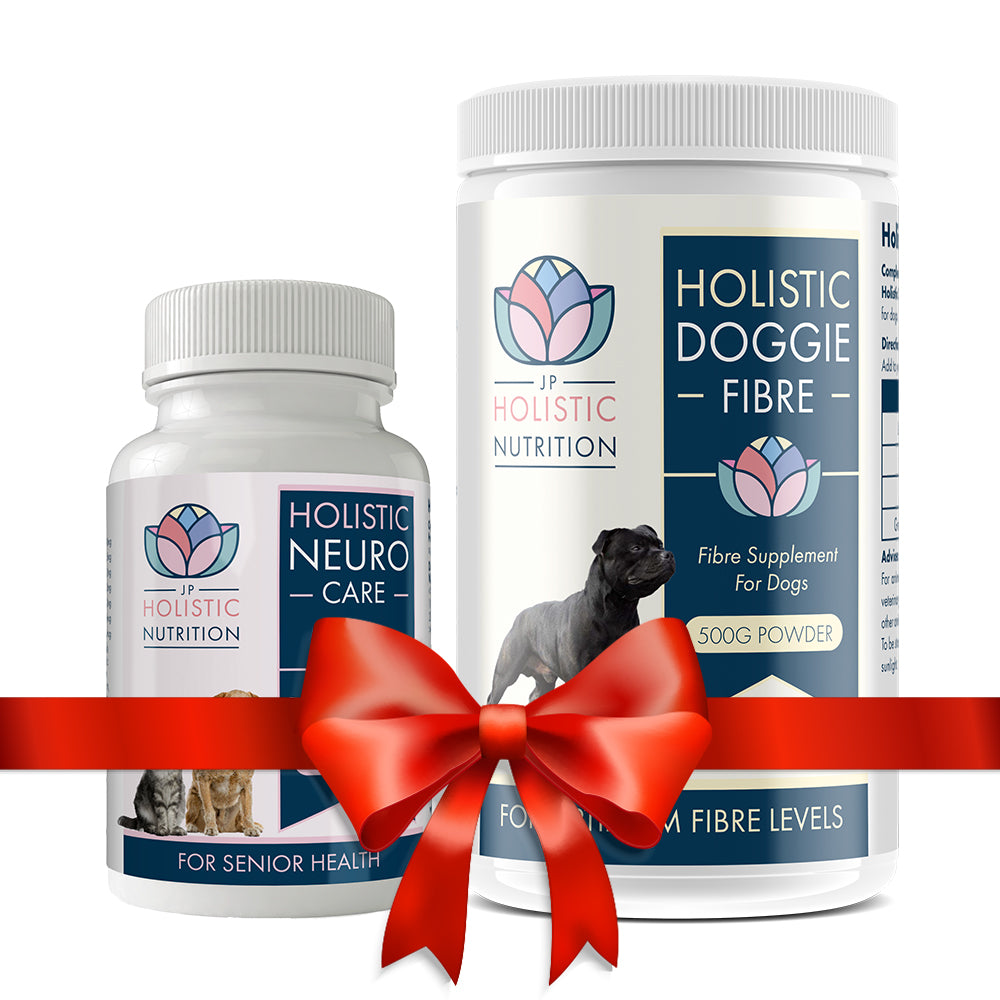
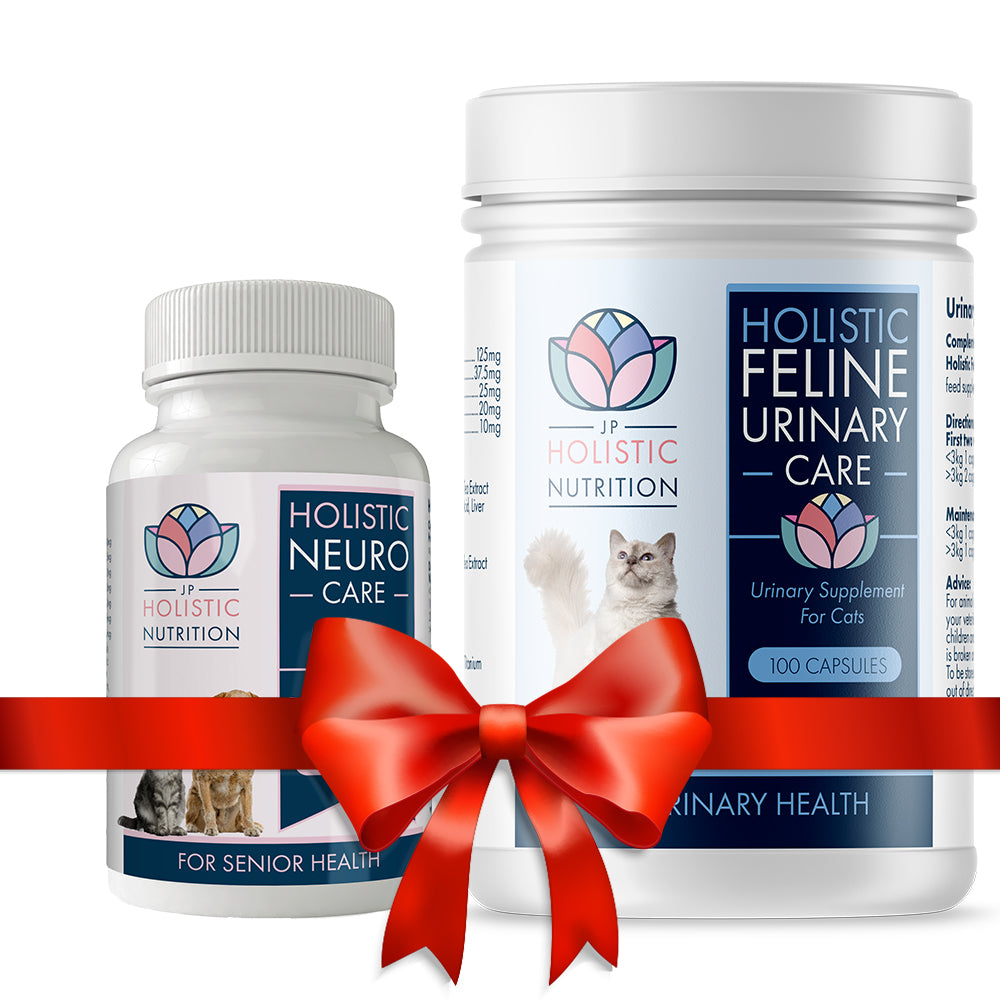
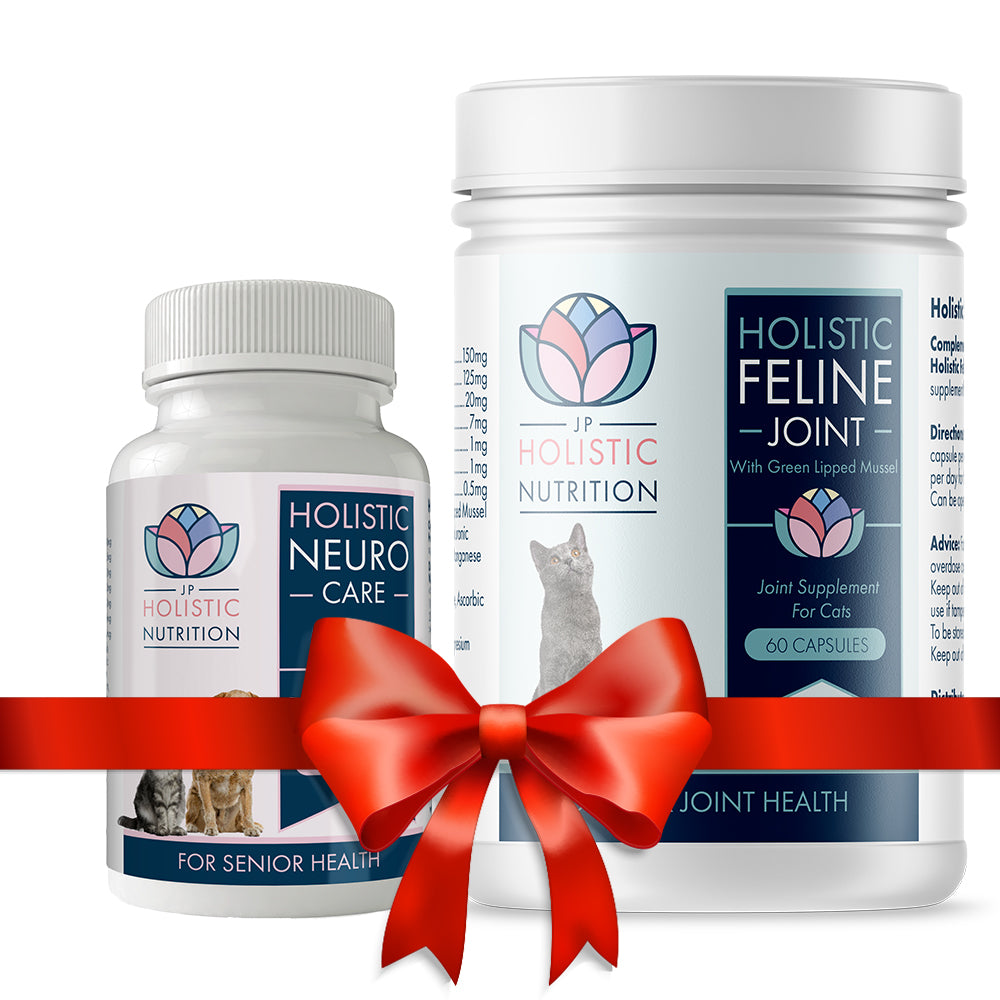


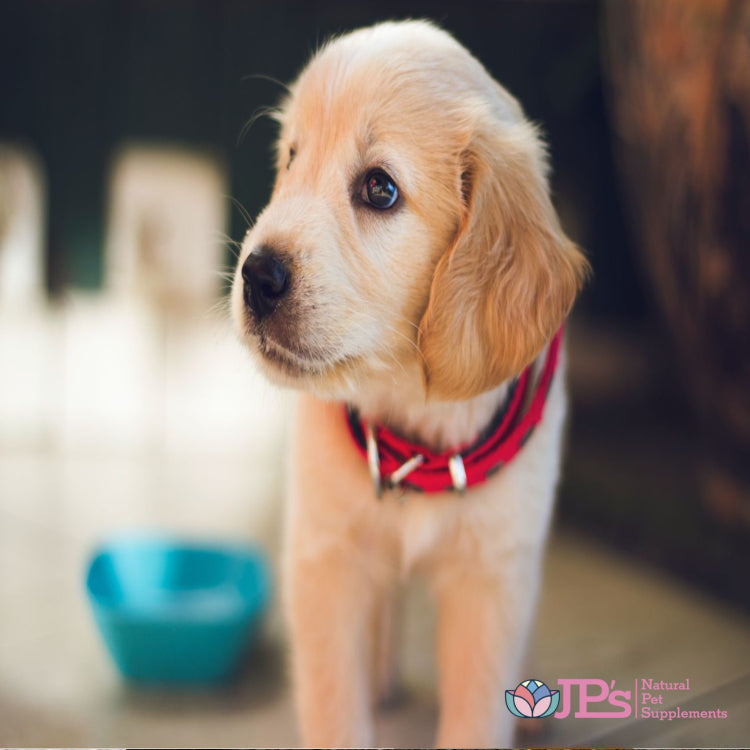
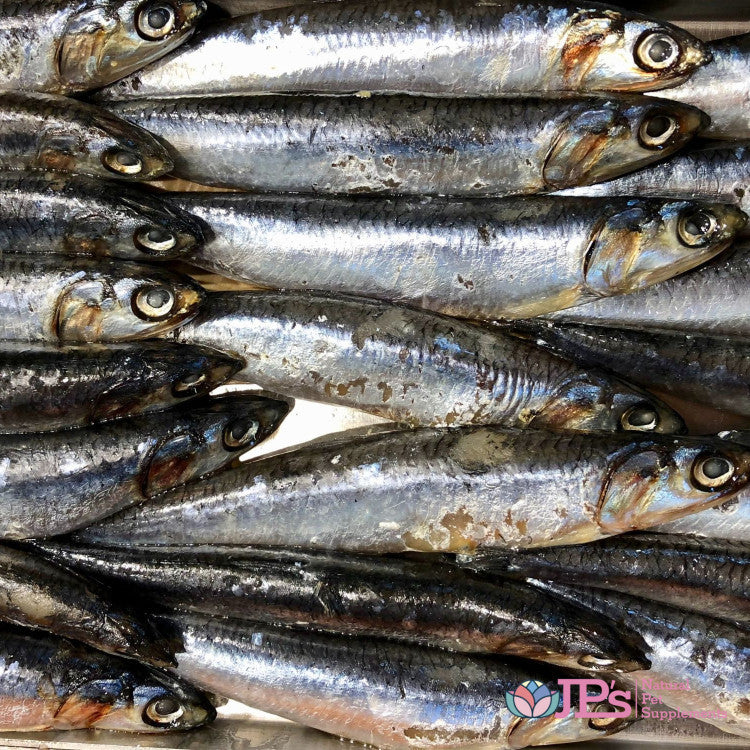
Leave a comment (all fields required)